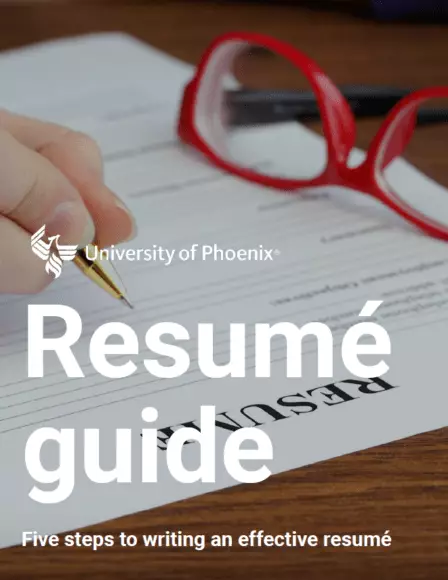Post-pandemic job outlook: What you should know about the 5 fastest-growing careers

Written by Elizabeth Exline

Reviewed by Jessica Roper, MBA,╠²director of Career Services at ░«╬█┤½├Į

If post-pandemic times have you nostalgic for the simplicity of planning a holiday or even just a happy hour, spare a thought for the pre-pandemic economy. Oh, 2019, you era of reasonable inflation and booming jobs!
These days, the employment situation is decidedly more complicated. ŌĆ£╠²to a 16-month low, hourly wages have slightly increased and job growth is trending upward ŌĆ” but I donŌĆÖt think Americans are out of the woods yet,ŌĆØ says Steven Starks, senior manager of╠²career advising programs╠²and operations at╠²░«╬█┤½├Į.
Starks describes his attitude to the post-pandemic job outlook as ŌĆ£cautiously optimistic.ŌĆØ On the one hand, the world is opening up, remote work is a viable opportunity for more job seekers and roles are abundant.
On the other hand, well:
- Job growth is╠²╠²between 2020 and 2030, with the majority of new jobs replacing those lost during the COVID-19 pandemic.
- As of writing this in 2022, about a third of almost 12 million new jobs in that same time frame will be low wage, according to the╠²╠²(Ą■│ó│¦).
- 88% of executives are seeing higher turnover than normal among their employees, according to a╠².
- The countryŌĆÖs labor force is projected to atrophy as the workforce ages, people retire and fewer young people gain employment, according to╠².
So, where does optimism come into play among these statistics? As in the stock market, where there is uncertainty in the job outlook, there is also opportunity.
What's the forecast for the 5 fastest-growing occupations?
LinkedIn┬«╠²offers a slightly different perspective. By examining current job data (including the roles with the highest year-over-year growth between April and October 2020), it identified 15 different ŌĆ£ŌĆØ in multiple sectors. The 15 are:
- E-commerce specialists╠²(e.g., personal shoppers, package handlers, supply chain associates, etc.)
- Loan and mortgage experts
- Healthcare support staff╠²(e.g., home health aides, pharmacy technicians, etc.)
- Business development and sales professionals
- Workplace diversity experts
- Digital marketing professionals
- Education professionals
- Nurses
- Digital content creators
- Professional and personal coaches
- Specialized engineers╠²(e.g., web developers, full-stack engineers, etc.)
- Mental health specialists
- User experience professionals
- Data science specialists
- Artificial intelligence engineers and specialists
StarksŌĆÖ own experience with employment trends supports both BLSŌĆÖ and LinkedInŌĆÖs projections. HeŌĆÖs seen growth, for example, in the leisure and hospitality industry as well as transportation and warehousing, food services, financial services and healthcare.
The gap between what BLS projects and what LinkedIn or Starks observes can be chalked up to the kind of data examined.
Starks explains: ŌĆ£The BLS data does not account for the pandemic because [its] employment projections are intended to capture structural changes in the economy whereas job-posting data from LinkedIn may be better suited for capturing cyclical fluctuations in the economy.ŌĆØ
What are the 5 fastest-growing careers that require a bachelor's degree?
If BLS first found its metrics unequal to the task of distinguishing between growth and COVID-19-related growth, it was able to recalibrate. By September 2021, it had developed two other notable lists.
One of these identifies the╠². This list includes most of its original five occupations (wind turbine service technicians, nurse practitioners and solar photovoltaic installers) but also features the following job titles:
- Statisticians
- Physical therapist assistants
- Information security analysts
- Home health and personal care aides
- Medical and health services managers
- Data scientists and mathematical science occupations
- Physician assistants
It is, however, BLSŌĆÖ projection of the five fastest-growing occupations (2020 to 2030) that╠²╠²that perhaps best captures the future of the job market and hiring trends once the COVID-19 pandemic is well and truly over.
These are:
| Occupation | Growth |
|---|---|
|
Nurse practitioners
|
52%
|
|
Agents and business managers for artists, performers and athletes
|
46%
|
|
Statisticians
|
35%
|
|
Information security analysts
|
33%
|
|
Film and video editors
|
33%
|
|
|
Beyond the job: 6 post-pandemic trends to expect
ItŌĆÖs one thing to anticipate which careers will boom in the coming years. ItŌĆÖs another to understand how those careers might evolve.
Consider, for example, your current job. When COVID-19 hit in March 2020, what was your response? How did your job change, not just in terms of where you worked but also╠²how╠²you worked? How did your employerŌĆÖs expectations shift? How did yours?
As it turns out, COVID-19 has changed not just what we do but how we do it. Here are the latest career predictions for both employers and workers in 2021,╠².
- ItŌĆÖs a remote world. We just click in it.╠²The work-from-home movement is no longer a movement but a way of life. This is good news for any worker whoŌĆÖs not a millennial or GenZ, generations that tend to equate their social life with their work life and prefer, apparently, having one.
- No one likes virtual meetings.╠²While there are ways to╠²make the virtual experience more palatable, the general consensus seems to be that the best way to counteract screen fatigue is to stay offline when the workday is done.
- The layoffs arenŌĆÖt over.╠²Companies big and little are looking to cut down on expenses, and the jobs arenŌĆÖt coming back as fast as you might think. (That might also translate to more closures among restaurants, retailers and small businesses.)
- Changing careers can be good (and sometimes necessary).╠²Learning new skills, going to╠²graduate school╠²or simply finishing college will become more common as people get used to changing course. (Or, to borrow that dreaded word of the pandemic, ŌĆ£pivot.ŌĆØ)
- Interviews feel more like trials.╠²Remember when you could get a job after two rounds of interviews? That was 20 years ago. These days, Forbes notes, three to eight interviews are the norm.
- Boomers are checking out.╠²Whether they got pushed into retirement or chose it of their own volition,╠²╠²left the workplace in the third quarter of 2020. This is a trend, Forbes says, not an exception. It also has consequences. According to a recent report by ProQuest (which was reported on by╠²), ŌĆ£Healthcare, engineering and IT struggle to replace senior management as millions of Baby Boomers retire. Meanwhile, retail and hospitality, who rely on younger workers, are desperate for employees.ŌĆØ
How to prepare for change
Deciding whether a career or╠²job change╠²is in your future requires some degree of introspection, Starks notes.
ŌĆ£Before you invest time, money and energy into a╠²career change, reflect on what you really want out of your career,ŌĆØ he says. ŌĆ£Your job is so much more than a paycheck. It takes up a significant portion of your life, so you need to think about your interests, values, lifestyle preferences and the type of people and company culture you want to be around.ŌĆØ
For many people, the COVID outbreak precipitated a new awareness around what really matters, and what they really wanted out of their careers. It's no longer enough to do what's expected, earn a wage and go home. Nowadays, people are openly seeking fulfillment from their careers, even if it's in an altogether different sector.
If your next move, be it an industry change or a job change, requires additional education, youŌĆÖre not alone. According to a recent Harris Poll survey commissioned by ░«╬█┤½├Į, 92% of adult learners believe higher education is a pathway to success.
But not all education is created equal. According to that same poll, 82% of adult learners think higher education needs to focus more on career support and preparedness, and 81% think schools should focus more on teaching transferrable career skills across professions or industries.
Read the full results of the survey in this press release:╠²Adult learners more likely to enroll at universities that emphasize career preparedness.
For many, community colleges (and the╠²universities that actively partner with them) provide this pathway. ░«╬█┤½├Į, for example, not only accepts eligible transfer credits from community colleges. It also offers the following to prepare its students for the modern workforce, no matter which trends are in play:
- Skills-aligned degree programs╠²that show students exactly what theyŌĆÖre learning so that they can apply it in real-time and in their future careers
- Professional development courses╠²in digital marketing, healthcare, education and IT
- Online certificate programs╠²for continued education
- Career Services for Life┬«╠²(for both students and alumni) to navigate a constantly evolving job market
Additional career resources
In addition to the soul searching necessary for determining the career path that will bring you both fulfillment and a fulfilling paycheck, itŌĆÖs important to do the research.
Starks recommends reviewing job details, educational requirements and projected growth on the╠²╠²as well as talking to ŌĆ£at least three people in the career field youŌĆÖre exploring.ŌĆØ
When itŌĆÖs time to begin the active search process, use the downloadable resources below, which cover the two pillars of any job search: writing an effective resum├® and writing a cover letter.╠²
To all of this, Starks adds one more piece of advice: ŌĆ£Whatever you do, donŌĆÖt expect a quick and easy path.ŌĆØ
It may involve research, additional education and╠²networking. It may involve looking at the global picture, local demand and how you fit into things. (Or what you need educationally to fit in.)╠²
But, with a little bit of luck and a lot of due diligence, that may just help you weather the next economic storm.
If itŌĆÖs time to upskill, explore ░«╬█┤½├ĮŌĆÖs╠²skills-aligned degree programs╠²and╠²professional development courses.

ABOUT THE AUTHOR
Elizabeth Exline has been telling stories ever since she won a writing contest in third grade. She's covered design and architecture, travel, lifestyle content and a host of other topics for national, regional, local and brand publications. Additionally, she's worked in content development for Marriott International and manuscript development for a variety of authors.

ABOUT THE REVIEWER
Jessica Roper, ░«╬█┤½├Į director of Career Services, is a seasoned leader with over 15 years of experience in leadership within higher education. She has honed her expertise in student services and career development and is passionate about helping others discover and refine their skills.
This article has been vetted by ░«╬█┤½├Į's editorial advisory committee.╠²
Read more about our editorial process.



